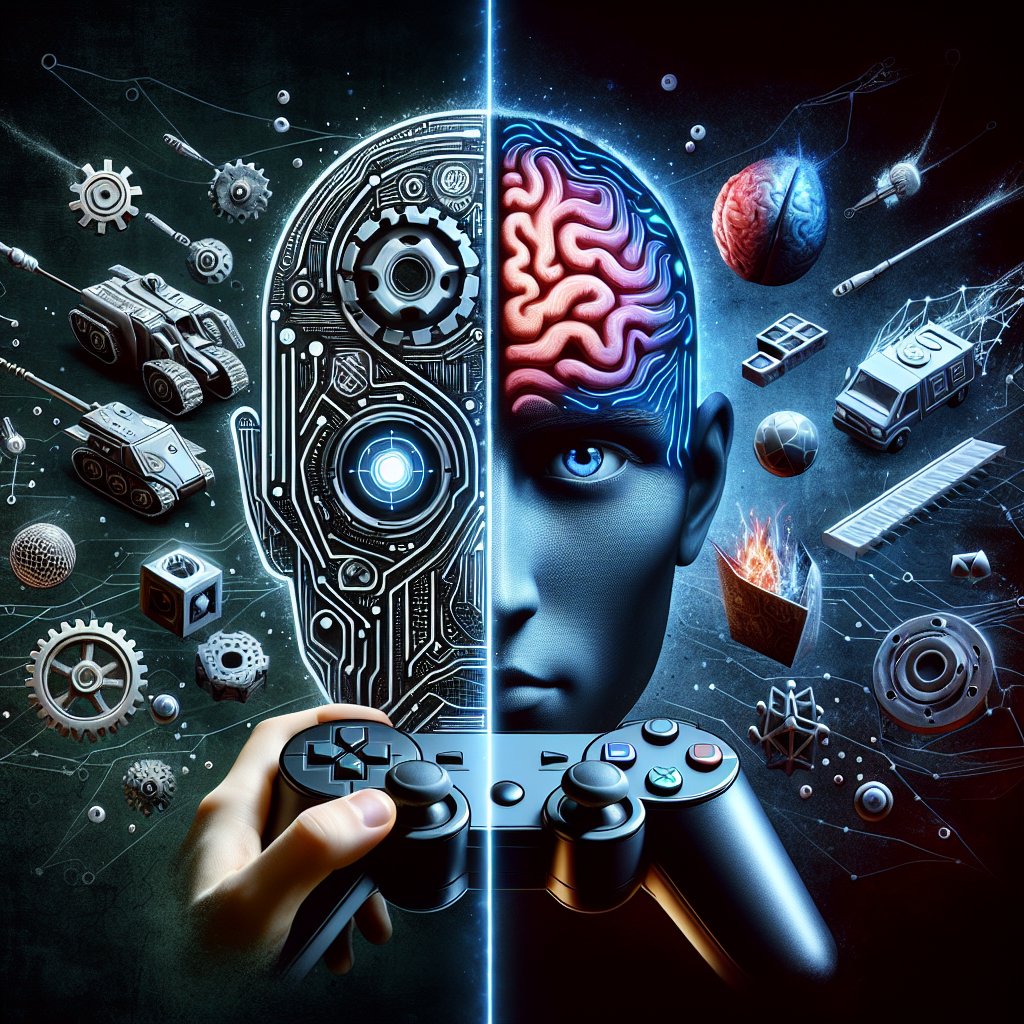In recent years, artificial intelligence (AI) has made significant advancements in the field of gaming, challenging human players in various games and competitions. From chess to poker to video games, AI has proven to be a formidable opponent, often outperforming even the most skilled human players. This has sparked a debate about the future of gaming and whether AI will eventually surpass human players in all aspects. In this article, we will explore the battle for gaming supremacy between AI and human players, examining the strengths and weaknesses of each side and the potential implications for the future of gaming.
AI in Gaming
AI has been a part of gaming for decades, with early examples including computer-controlled opponents in games like chess and checkers. However, recent advancements in AI technology, particularly in the field of machine learning and deep learning, have enabled AI to become much more sophisticated and capable of competing with human players in a wide range of games.
One of the most notable examples of AI in gaming is AlphaGo, developed by DeepMind, a subsidiary of Google. In 2016, AlphaGo made headlines when it defeated the world champion Go player, Lee Sedol, in a historic match. This victory demonstrated the power of AI in mastering complex games that were previously thought to be beyond the reach of machines.
AI has also proven to be a formidable opponent in games like chess and poker. In 1997, IBM’s Deep Blue defeated world champion Garry Kasparov in a highly publicized match, marking a significant milestone in the development of AI for gaming. More recently, AI has dominated in poker competitions, with programs like Libratus and Pluribus outperforming top human players in Texas Hold’em.
The Battle for Gaming Supremacy
The battle for gaming supremacy between AI and human players is ongoing, with both sides continuously pushing the boundaries of what is possible in gaming. AI has several advantages over human players, including the ability to analyze vast amounts of data, calculate probabilities more accurately, and make decisions more quickly. AI also does not suffer from fatigue or emotions, giving it a consistent performance level over extended periods of time.
On the other hand, human players have certain advantages over AI, such as creativity, intuition, and adaptability. Humans can think outside the box, develop new strategies on the fly, and adjust their gameplay based on the behavior of their opponents. While AI excels at analyzing data and making precise calculations, humans are better at understanding the broader context of a game and making intuitive decisions based on incomplete information.
The battle for gaming supremacy is not just limited to traditional board games and card games. AI is also making significant inroads in the world of video games, with programs like OpenAI’s Dota 2 bot challenging top professional players in multiplayer online battle arena (MOBA) games. These AI bots are capable of learning from their mistakes, adapting to different playstyles, and even collaborating with other bots to form strategies and tactics.
Implications for the Future of Gaming
The rise of AI in gaming raises important questions about the future of gaming and the role of human players in a world dominated by machines. Will AI eventually surpass human players in all aspects of gaming, rendering human competition obsolete? Or will human players continue to hold their own against AI, leveraging their creativity and adaptability to maintain a competitive edge?
One potential outcome is a symbiotic relationship between AI and human players, where AI serves as a training tool and sparring partner for human players, helping them improve their skills and develop new strategies. This could lead to a new era of gaming where human players and AI work together to push the boundaries of what is possible in gaming.
Another possibility is that AI will dominate in certain games and competitions, while human players excel in others. For example, AI may be unbeatable in games that require precise calculations and perfect information, such as chess and poker, while human players continue to shine in games that require creativity, intuition, and adaptability, such as real-time strategy games and MOBAs.
Ultimately, the future of gaming will likely be shaped by a combination of AI and human players, with each side bringing its own strengths and weaknesses to the table. The battle for gaming supremacy will continue to evolve as AI technology advances and human players adapt to the changing landscape of gaming.
FAQs
Q: Can AI really beat human players in games like chess and poker?
A: Yes, AI has already proven its ability to beat human players in games like chess and poker. Programs like AlphaGo and Deep Blue have defeated world champions in these games, demonstrating the power of AI in mastering complex games.
Q: Will AI eventually surpass human players in all aspects of gaming?
A: It is possible that AI will surpass human players in certain games and competitions, particularly those that require precise calculations and perfect information. However, human players will likely continue to hold their own in games that require creativity, intuition, and adaptability.
Q: How can human players compete against AI in gaming?
A: Human players can compete against AI by leveraging their creativity, intuition, and adaptability to develop new strategies and tactics. They can also use AI as a training tool and sparring partner to improve their skills and performance in games.
Q: What are the implications of AI in gaming for the future of the industry?
A: The rise of AI in gaming has the potential to revolutionize the industry, leading to new opportunities for innovation and collaboration between AI and human players. The future of gaming will likely be shaped by a combination of AI and human players, each bringing its own strengths and weaknesses to the table.

